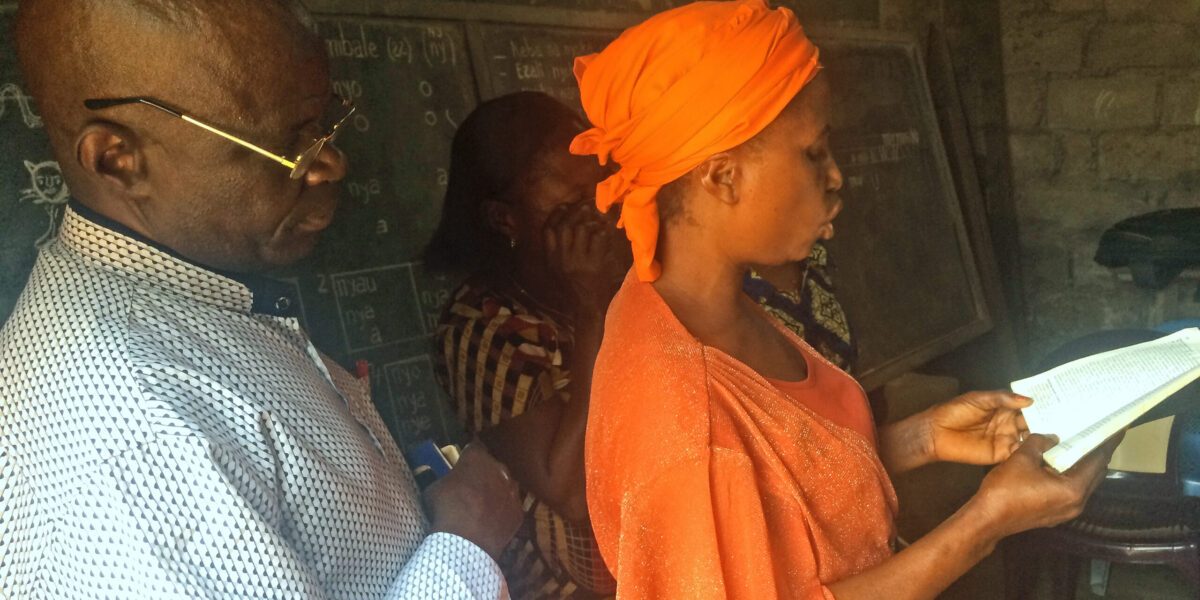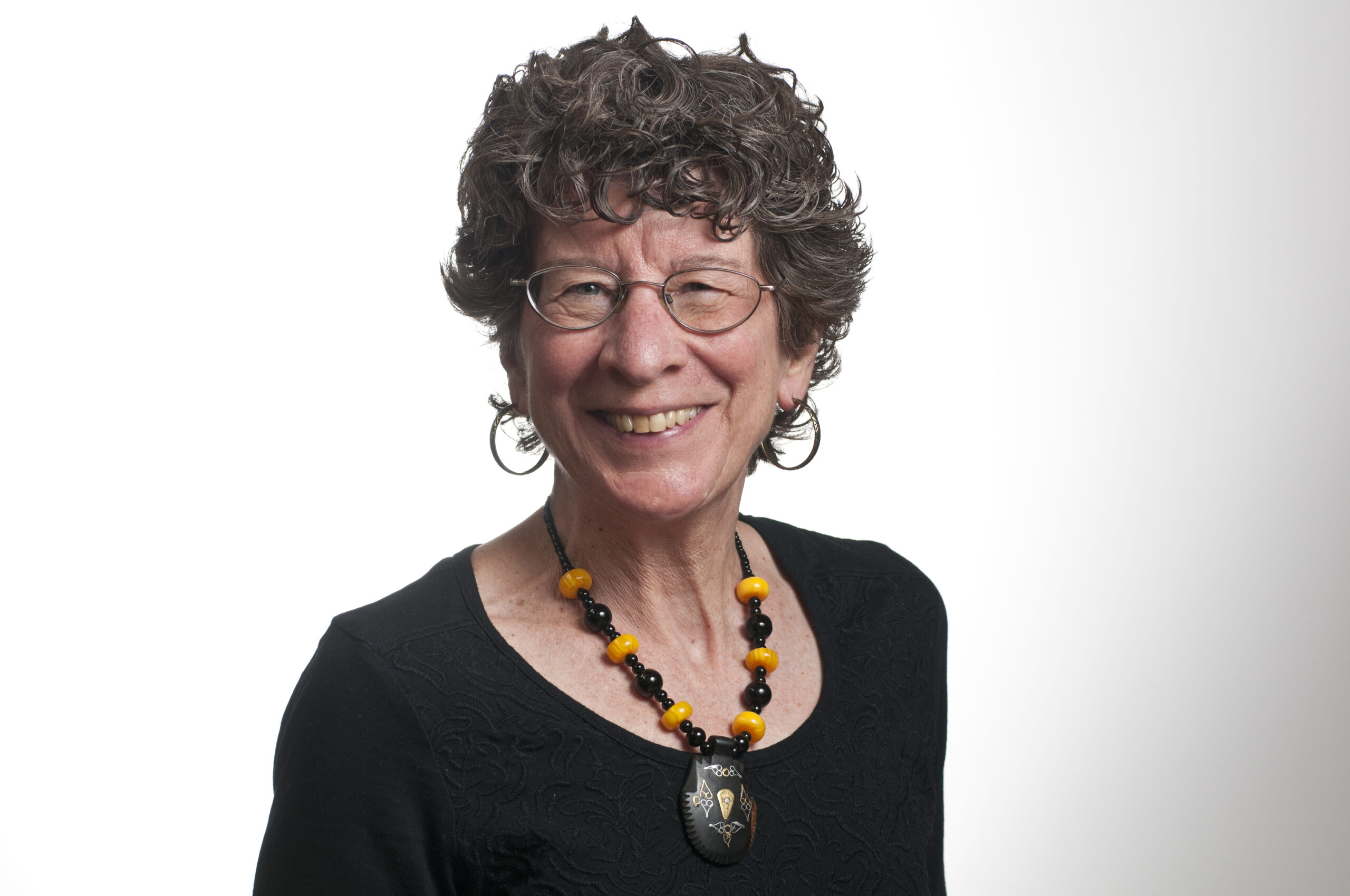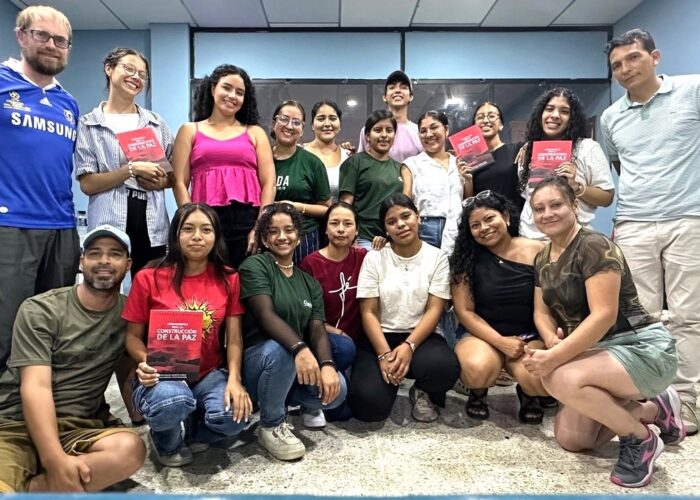ELKHART, Indiana (Africa Inter-Mennonite Mission/Mennonite Mission Network) – In the past two years, more than 260 literacy teachers have been trained in the Democratic Republic of Congo. Now, they are helping 2,560 others learn to read and write in more than 100 locations. Most of the new readers are women and girls.
Women leaders in the three Mennonite denominations in country have been working together on Evangelization Through Literacy, a project begun in April 2017. Supported with funding from Africa Inter-Mennonite Mission, Mennonite Church Canada, and Mennonite Mission Network, the success of the project has attracted the notice of UNESCO’s Institute of Lifelong Learning, which has asked for information about the program to enter in their literacy database.
National leaders of the women’s groups of the three Mennonite dominations – Communauté Mennonite au Congo (Mennonite Church of Congo), Communauté des Eglises des Frères Mennonites au Congo (Mennonite Brethren Church of Congo), and Communauté Evangélique Mennonite au Congo (Evangelical Mennonite Church of Congo) – initiated the literacy project so that women could learn more about Jesus’ love for them and grow in their Christian lives.
More than a third of the women in Congo are not able to read and write. However, Mennonites report that in most of their rural congregations, illiteracy among adult women runs as high as 80 percent. They also calculate that the number of young people who are not able to read and write is increasing due to politically motivated violence that has disrupted education.
The literacy project was launched by women for women, but it welcomes the participation of males as both trainers and students. And while the classes were intended to help Christians to grow in their faith, all comers are welcome to learn to read and write in their regional languages. So far, classes have featured the Kikongo, Lingala, Swahili, and Tshiluba languages.
Until now, the literacy project has hired a specialist, Timothée Sila, to teach the literacy trainers. The focus in 2019 is to develop a core of Mennonite Church trainers of trainers, using a method that can be taught to educated, dedicated, potential instructors in a week. Using biblical stories and lessons, the method emphasizes encouragement and compassion as the basis for the teacher-student relationship.
During a teacher-training seminar in Kikwit, people who hadn’t learned to read and write volunteered to demonstrate the pedagogical method. Sila shared the prayer of one young woman, who learned to read during the five-day seminar. (Her name is unknown because she wasn’t enrolled.)
"Lord God, we thank you! We have been humiliated, despised, and publicly insulted. We have been treated as sub-human, and we didn’t have the right to respond because we were limited. But you have begun to put an end to all of that. We have started to read and write! Bless and equip all the teachers who are being trained here, and who will continue to teach us in order to raise us up out of this situation. In Christ’s name, Amen."
Nancy J. Myers has been a source of encouragement to the Mennonite women leaders. Myers and her husband, Victor, taught school in Congo (then Zaïre) for three years with Mennonite Central Committee from 1971-1974. After a career as writer and editor working for world peace, international security, and environmental concerns, Myers renewed her ties with Congo, which led her to help edit The Jesus Tribe. This collection of biographies of Congolese Mennonites was published in 2012 for the centennial celebration of the Mennonite churches in Congo. Since then, Myers has made five trips to Congo to empower Mennonite women and to promote the literacy project.
The literacy project’s approach to evangelism is noncoercive and is appropriate in Congolese culture where openly witnessing about faith is part of daily life, Myers said. A survey done by Congolese Mennonites shows that 52 people have made a decision to follow Jesus after attending the classes.
"In a country where most struggle to survive economically, the culture of volunteerism is not well developed," Myers wrote in a report for UNESCO. "However, the churches of Congo have remained a strong force for social cohesion and support."
Literacy trainers volunteer their time to teach 57 lessons to a cohort of students. The lessons are structured for a three-month period. However, in many locations, due to political turmoil that interrupts the regularity of classes, it commonly takes six months for a non-reader to complete the course, which emphasizes writing as well as reading.
"The joy and gratitude of their students energize the teachers. Empowering others has been so empowering to these volunteers that the project is growing much more quickly than first anticipated," Myers said.





